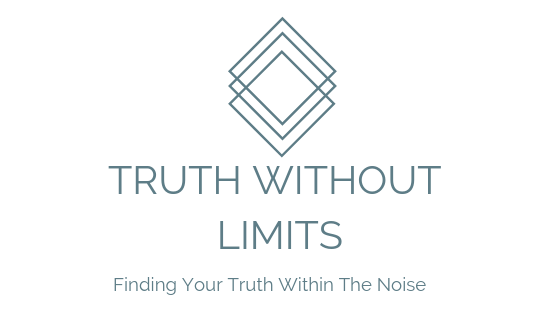Everyone experiences anxiety at least once in their life. People are becoming more and more anxious as time goes on. The suspected reasons for this will be in another post ;D. The world is moving faster. With social media, the hustle lifestyle, and feeling pressure to “keep up” with societal pressures, people often reach their breaking point.
Anxiety doesn’t have to be an all-out panic attack. It can be the daily voice in your head that reminds you of the terrible things that could happen or the feeling in your gut that makes you edgy. Some anxiety can be beneficial but the anxiety I’m referring to is the kind that effects your behavior and inhibits you from functioning at your maximal level.

Here are some supplements that can help…
Inositol Powder
Inositol powder can work as effectively as a fast-acting anxiety pill. It is important to slowly increase the dose as some people get loose stools from it. It’s extremely effective. I recommend starting with 3 grams and slowly increase to 10 grams over the course of a week. The powder has a sweet taste which is pleasant so don’t worry about the taste. If you add it to a water bottle and drink it throughout the day, it’s a good way to let your body slowly adapt to the inositol.
People with panic disorder can taper up to 18 grams but again, it’s important to titrate slowly to prevent GI side effects.Some call inositol vitamin B8 but it’s not a vitamin. It’s a sugar that can help regulate the neurotransmitters in the brain called serotonin and dopamine (happy and pleasure neurotransmitters). Inositol can actually be found in our bodies and people with anxiety and depression have been found to have lower natural levels of inositol.
It’s been shown to be helpful in diabetes, panic disorder, depression, and anxiety. There is also positive data on polycystic ovarian disease.

Ashwagandha
This is an herb that is considered an adaptogen. An adaptogen is basically something that helps your body “adapt” to stress or illness. It tries to keep the body “in balance” and it fights against stress. Start with 225mg twice a day then increase to 500mg twice a day. It can take several weeks to see an effect so stick with it.
L-theanine
This is one of my go to’s for my patients with anxiety. It’s a very effective supplement with less side effects. It can help with focus, attention, memory, learning, and gives you a sense of calm. (What more can you ask for?). I recommend taking anywhere from 200 to 400 mg up to three times daily.
Magnesium Glycinate or Magnesium Chloride
There are a lot of people who are deficient in magnesium which is a vital mineral. It comes from the soil but because our soil has been depleting over time, our food has less magnesium in it. Lack of magnesium can lead to anxiety, insomnia, muscle tension, constipation, and even high blood pressure. It’s also been shown to help with migraines.
Magnesium is a vital part of our diet as it regulates biochemical reactions in the body. Without Mg+ it can lead to arrhythmias, and even death. US intake is usually around 350mg daily but we need around 400mg.
I recommend taking the magnesium glycinate as it’s easier on the GI tract. Magnesium citrate could be helpful if you’re constipated. I recommend taking 400mg BID of the magnesium glycinate for anxiety. It has around 80% bioavailability which means that’s what your body can use .
There is a magnesium chloride that can be put on the skin and magnesium can be absorbed that way too. I recommend taking it at bed time because it can make you tired. If it doesn’t, then you’ll know you’re safe to take it throughout the day.
Lemon Balm
This is an herb that can be gentle and soothing. There is evidence-based research supporting this. Lemon balm can be an addition to add when you’re consumed by anxiety. It can be difficult to find a tincture of this, but if you can, put a dropperful on your tongue a few times daily when you’re anxious. Its been used in research for up to four months with positive results.
The most common side effects include nausea, dizziness, and constipation. I recommend using 300mg of a standardized lemon balm extract twice daily for two weeks.
Talk soon XOX,
Sarah

References
Scholey A et al. Anti-stress effects of lemon balm-containing foods.Nutrients 2014 Oct 30;6(11):4805-21
Cases, J. et al. Pilot trial of Melissa officinalis L. leaf extract in the treatment of volunteers suffering from mild-to-moderate anxiety disorders and sleep disturbances Mediterranean Journal of Nutrition and MetabolismDOI: 10.3233/s12349-010-0045-4
Case, K. A meta‐analysis of inositol for depression and anxiety disorders U Human Psychopharmacology; Clinical and Experimental DOI: https://doi.org/10.1002/hup.2369
Kinrys, et al. (2009). Natural remedies for anxiety disorders: Potential use and clinical applications. Depression and Anxiety, 26(3), 259-265. doi:10.1002/da.20460
Boyle, N., et al. The Effects of Magnesium Supplementation on Subjective Anxiety and Stress—A Systematic Review. (2017). Nutrients, 9(5), 429. doi:10.3390/nu9050429
Guo W., et al. Magnesium deficiency in plants: An urgent problem. The Crop Journal, Volume 4, Issue 2, April 2016, Pages 83-91.
Barragan-Rodriquez L, et al. Efficacy and safety or oral magnesium supplementation in the treatment of depression in the elderly with type 2 diabetes: a randomized, equivalent trial. Magnesium Research, 2008 Dec;21(4):218-23.
Morgan A., et al. The Journal of Alternative and Complementary Medicine.Dec 2014.ahead of printhttp://doi.org/10.1089/acm.2014.0177

